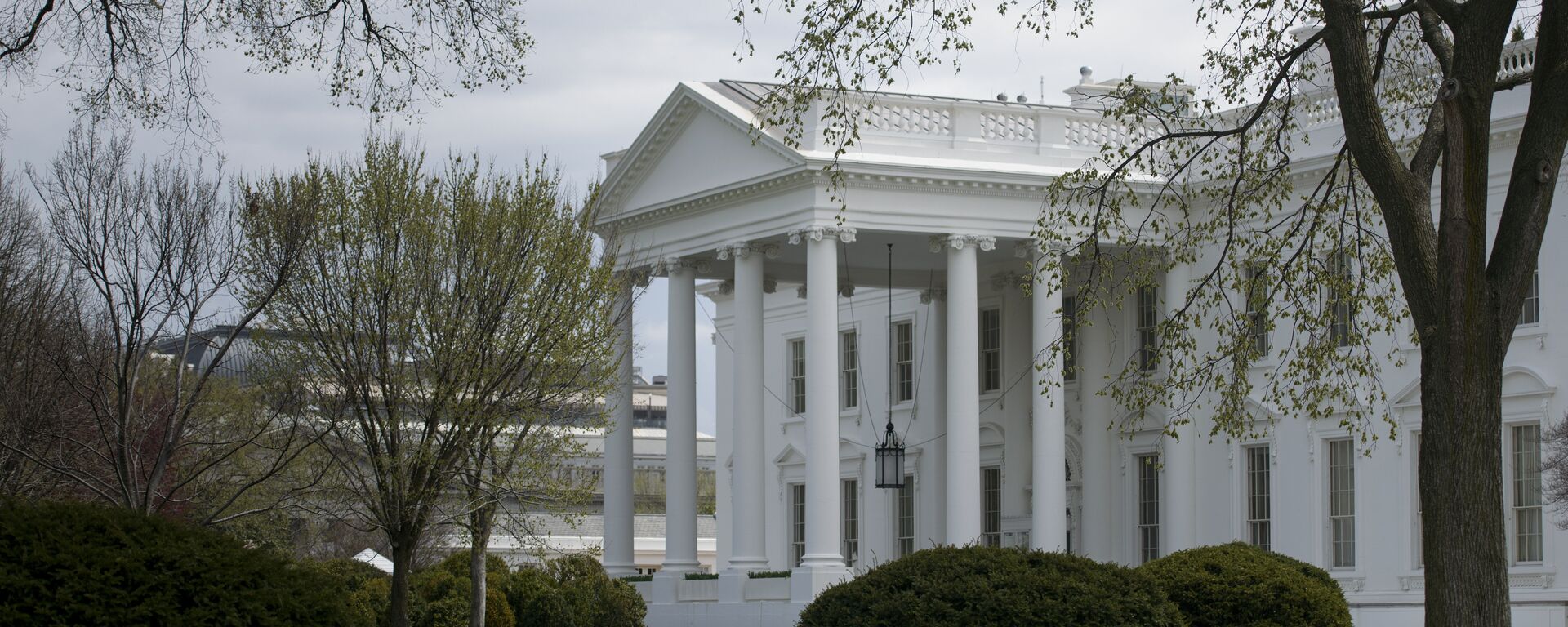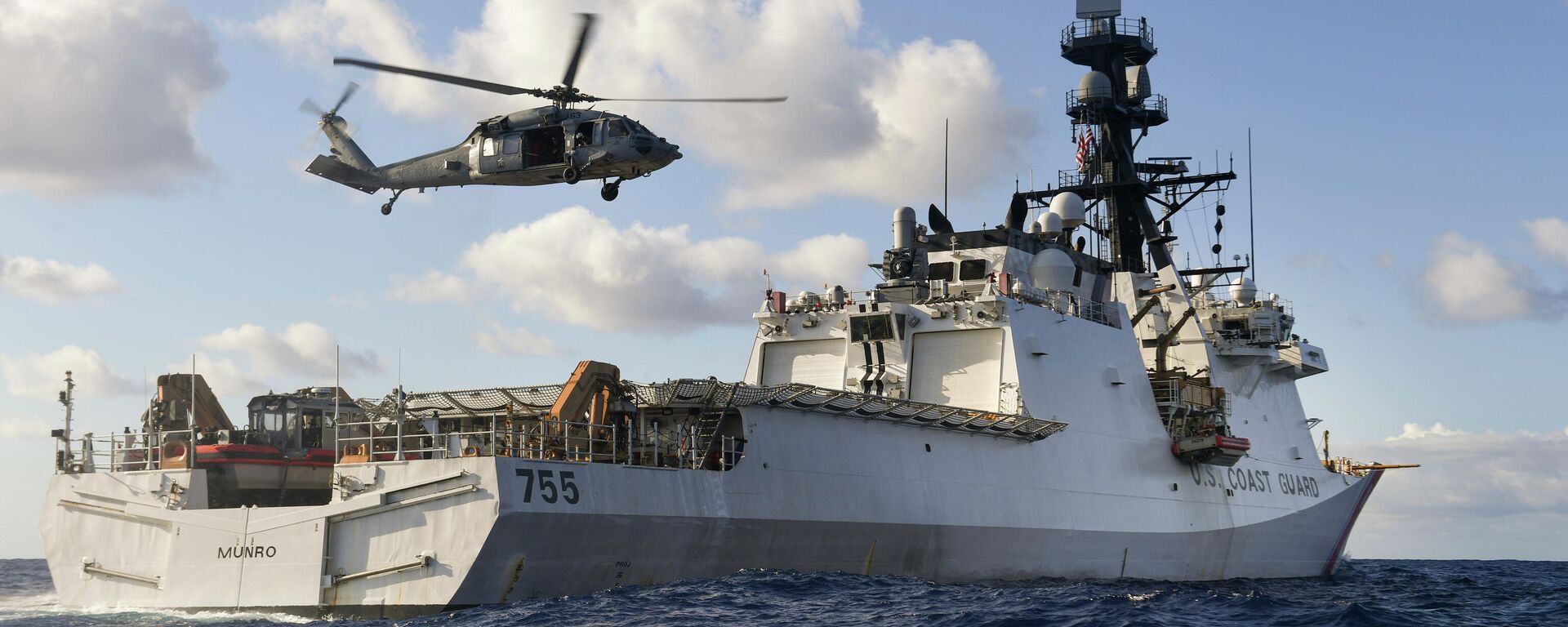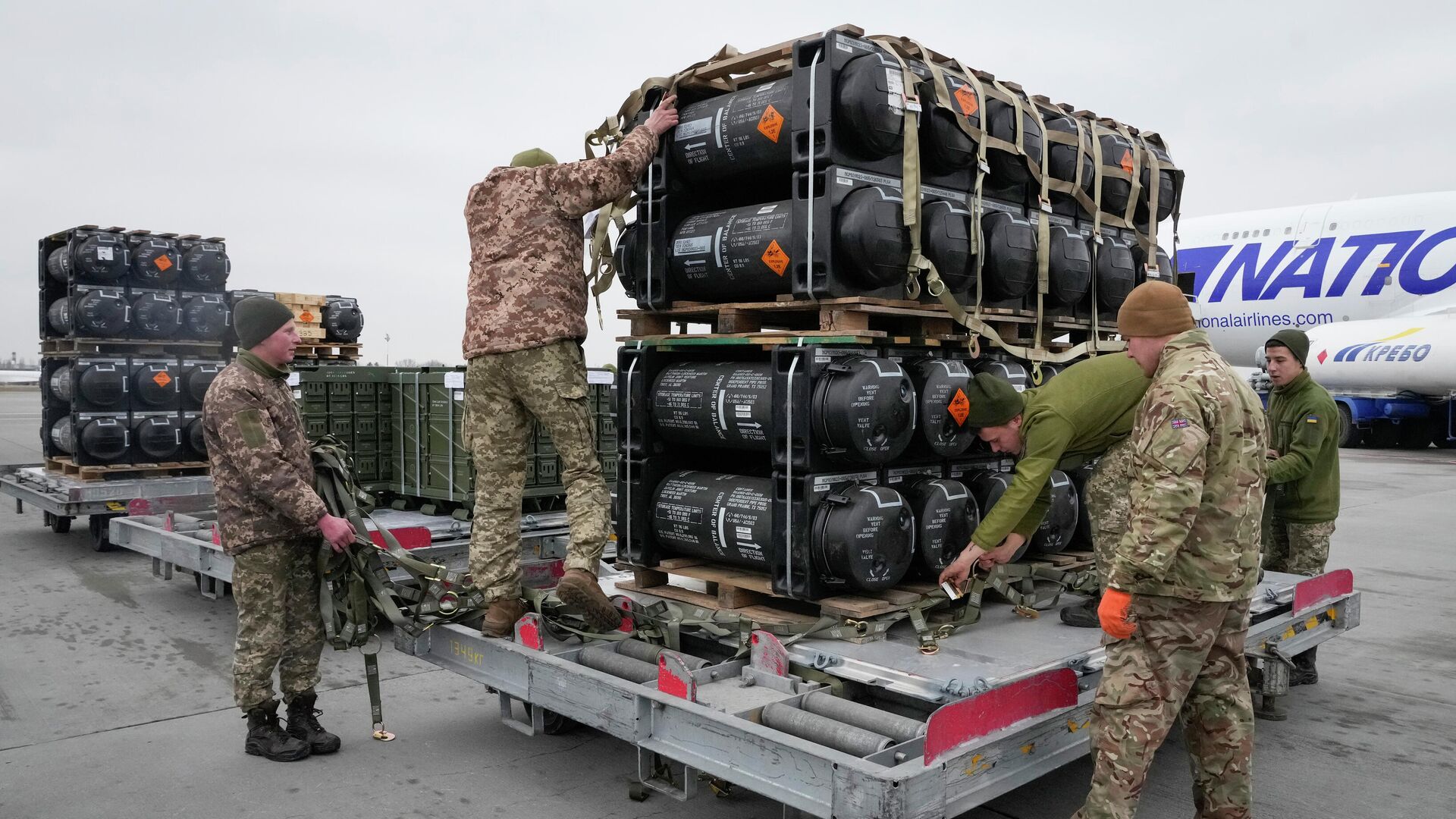https://sputnikglobe.com/20230101/us-aid-to-ukraine-may-weaken-americas-deterring-capacity-in-east-asia-report-1105965788.html
US Aid to Ukraine May Weaken America’s ‘Deterring Capacity’ in East Asia: Report
US Aid to Ukraine May Weaken America’s ‘Deterring Capacity’ in East Asia: Report
Sputnik International
Since the beginning of the ongoing Russian special operation in Ukraine, the US has sent more than $40 billion worth of arms to Kiev
2023-01-01T06:56+0000
2023-01-01T06:56+0000
2023-01-01T06:56+0000
americas
us
russia
ukraine
nato
support
capacity
special operation
https://cdn1.img.sputnikglobe.com/img/07e6/03/01/1093482779_0:0:3277:1844_1920x0_80_0_0_b611052748eef8398e4f9e09cea112d4.jpg
Washington may face problems pertaining to its clout in Asia due to America’s push to go ahead with its financial and military support for Ukraine, a US newspaper has reported.In East Asia, a region that is “more important to Americans’ prosperity than Ukraine”, the US is “threatened by a far more powerful rival in China.”This followed the Biden administration unveiling the new US defense strategy in late October, in which it described China as the greatest danger to American security. Last summer, US National Guard Bureau Army chief Gen. Dan Hokanson said in an interview with a separate American media outlet last summer that the US military is seeking to amplify its training presence in the Asia-Pacific region.The US National Guard training initiative was launched back in 2002. Since then, the guard has added 15 of the 36 Asia-Pacific nations to the program. Among them are Bangladesh, Cambodia, Fiji, Indonesia, Malaysia, Mongolia, Nepal, Papua New Guinea, the Philippines, Sri Lanka, the Maldives, Thailand, Timor-Leste, Tonga, and Vietnam.Hokanson’s remarks came after US Chairman of the Joint Chiefs of Staff Gen. Mark Milley elaborated during his trip to Indonesia that Washington prioritizing the Asia-Pacific region has taken on new significance, given China’s increased "aggressiveness" over the past five years.Washington and Beijing remain at loggerheads over a slew of issues, including those related to Taiwan, seen by China as an essential part of the mainland. Beijing is frustrated over Washington’s growing arms sales to Taipei as well as US President Joe Biden's pledges to "defend" the island in the event of an "invasion" by Beijing. Tensions were further escalated after then-US House Speaker Nancy Pelosi visited Taiwan in August, a trip that was followed by Beijing launching large-scale military drills near the island in a retaliation move.On Ukraine, Washington is going ahead with providing Kiev with weapons and money, something that Moscow earlier warned further aggravates the Ukrainian conflict and makes the US directly complicit. The $1.7 trillion spending bill, which was signed into law by President Joe Biden late last year, includes nearly $45 billion in aid for Ukraine and NATO allies.Also last year, some experts warned that the US is running out of weapon to send to Ukraine, with Mark Cancian of the US-based Center for Strategic and International Studies think tank writing in an analysis that US stockpiles of some equipment are "reaching the minimum levels needed for war plans and training," and that Washington restocking levels that were in place ahead of the Russian special operation in Ukraine could take years.
https://sputnikglobe.com/20221221/biden-directs-drawdown-of-up-to-1bln-in-defense-articles-for-ukraine-white-house-1105676172.html
https://sputnikglobe.com/20221019/scholars-us-expansion-of-coast-guard--cyber-prowess-in-asia-pacific-part-of-anti-china-strategy-1102093424.html
americas
russia
ukraine
Sputnik International
feedback@sputniknews.com
+74956456601
MIA „Rossiya Segodnya“
2023
Oleg Burunov
https://cdn1.img.sputnikglobe.com/img/07e4/09/0b/1080424846_0:0:2048:2048_100x100_80_0_0_3d7b461f8a98586fa3fe739930816aea.jpg
Oleg Burunov
https://cdn1.img.sputnikglobe.com/img/07e4/09/0b/1080424846_0:0:2048:2048_100x100_80_0_0_3d7b461f8a98586fa3fe739930816aea.jpg
News
en_EN
Sputnik International
feedback@sputniknews.com
+74956456601
MIA „Rossiya Segodnya“
Sputnik International
feedback@sputniknews.com
+74956456601
MIA „Rossiya Segodnya“
Oleg Burunov
https://cdn1.img.sputnikglobe.com/img/07e4/09/0b/1080424846_0:0:2048:2048_100x100_80_0_0_3d7b461f8a98586fa3fe739930816aea.jpg
us' possible problems pertaining to its clout in asia, us's aid to ukraine, russia's special operation in ukraine, new us defense strategy
us' possible problems pertaining to its clout in asia, us's aid to ukraine, russia's special operation in ukraine, new us defense strategy
US Aid to Ukraine May Weaken America’s ‘Deterring Capacity’ in East Asia: Report
Since the beginning of the ongoing Russian special operation in Ukraine, the US has sent more than $40 billion worth of arms to Kiev. This is something that Moscow says actually makes Washington a direct party to the Ukrainian conflict.
Washington may face problems pertaining to its clout in Asia due to America’s push to go ahead with its financial and
military support for Ukraine, a US newspaper has reported.
“On the populist side, the best argument for limiting America’s involvement in Ukraine is likewise not ideological but strategic: that the United States is burning through munitions so quickly that it might be weakening Washington’s deterrence capacity in East Asia in the short term,” the report said.
In East Asia, a region that is “more important to Americans’ prosperity than Ukraine”, the US is “threatened by a far more powerful rival in China.”

21 December 2022, 16:57 GMT
In an apparent nod to the Ukrainian conflict and the ongoing Russian special operation in Ukraine, the US media outlet claimed that “[…] It might be more productive for Washington to try to wall off the war from the United States’ raging cultural conflicts that distort everything in their path. That would mean justifying Washington’s support for Ukraine not as an open-ended ideological mission but as a limited defense of national sovereignty and a demonstration of US military strength.”
This followed the Biden administration unveiling the new US defense strategy in late October, in which it described China as the greatest danger to American security.
Defense Secretary Lloyd Austin wrote in the introduction to the strategy that “The PRC [People’s Republic of China] remains our most consequential strategic competitor for the coming decades.”
Last summer, US National Guard Bureau Army chief Gen. Dan Hokanson said in an interview with a separate American media outlet last summer that the US military is seeking to amplify its training presence in the Asia-Pacific region.
The US National Guard training initiative was launched back in 2002. Since then, the guard has added 15 of the 36 Asia-Pacific nations to the program. Among them are Bangladesh, Cambodia, Fiji, Indonesia, Malaysia, Mongolia, Nepal, Papua New Guinea, the Philippines, Sri Lanka, the Maldives, Thailand, Timor-Leste, Tonga, and Vietnam.
Hokanson’s remarks came after US Chairman of the Joint Chiefs of Staff Gen. Mark Milley elaborated during his trip to Indonesia that Washington prioritizing
the Asia-Pacific region has taken on new significance, given China’s increased "aggressiveness" over the past five years.
Washington and Beijing remain at loggerheads over a slew of issues, including those related to Taiwan, seen by China as an essential part of the mainland. Beijing is frustrated over Washington’s growing arms sales to Taipei as well as US President Joe Biden's pledges to "defend" the island in the event of an "invasion" by Beijing. Tensions were further escalated after
then-US House Speaker Nancy Pelosi visited Taiwan in August, a trip that was followed by Beijing launching large-scale military drills near the island in a retaliation move.

19 October 2022, 18:55 GMT
On Ukraine, Washington is going ahead with providing Kiev with weapons and money, something that Moscow earlier warned further aggravates
the Ukrainian conflict and makes the US directly complicit. The $1.7 trillion spending bill, which was signed into law by President Joe Biden late last year, includes nearly $45 billion in aid for Ukraine and NATO allies.
Also last year, some experts warned that the US is running out of weapon to send to Ukraine, with Mark Cancian of the US-based Center for Strategic and International Studies think tank writing in an analysis that US stockpiles of some equipment are "reaching the minimum levels needed for war plans and training," and that Washington restocking levels that were in place ahead of
the Russian special operation in Ukraine could take years.





